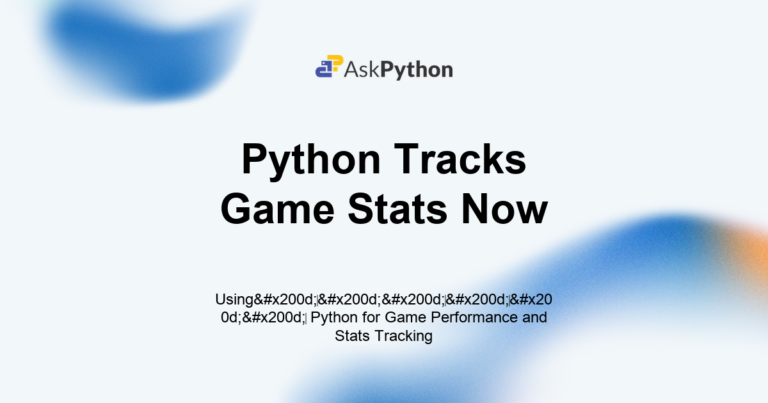Python is one of the most popular programming languages. It has great features that enable players to kickstart their creative minds. However, it is so complex that even the most qualified can fail to notice errors in the work. This article checks for a few hard-to-pick errors that even the most advanced Python programmers may fail to notice.
Not Specifying the Correct Parameters for the Exception Block
Let us consider the code below:
>>> try:
... l = ["c", "d"]
... int(l[2])
... except ValueError, IndexError: # To catch both exceptions, right?
... pass
...
Traceback (most recent call last):
File "(stdin)", line 3, in (module)
IndexError: list index out of range
In the case above, the ‘except’ function fails to take the list of exceptions specified in the code. Instead, Python uses except Exception, ‘e’ to bind exceptions to the optional second perimeter that the programmer specified, in the case of our example ‘e’. Here, the ‘except’ statement does not catch the entire exception. This is the reason why you end up with a parameter called ‘IndexError’.
This is a common error in most products that are online. It used to be a problem with online casinos and opt-in sites, but now many new online casinos in New Zealand are good at it for their Python-based products.
A common way around the problem is to specify that the first parameter is a tuple that contains all the exceptions that you need caught in the code. Besides, in order to ensure maximum portability, always use the keyword ‘as’. Both Python 2 and Python 3 support the syntax.
Misusing Expression by Defaults When Making Function Arguments
One of the unique features of Python is that it allows you to make a function argument optional if you provide the default value for it. This is a great feature for programmers, as it gives them some form of flexibility when creating different functions. However, it can also be a source of confusion, especially if the default value is mutable.
In Python, the default value for a given function is only elevated once. This is the time that you defined the function. Therefore, when you initialize an argument by giving the optional argument, it always answers the initial expression whenever you call out the optional value. If you wish to use the optional argument, you must specify that the initial function argument is unavailable.
Failing to Understand Python Scope Rules
Python uses the LEGB rule when determining scope resolutions. LEGB stands for Local, Enclosing, Global and Built-in. While this seems pretty straightforward, there are a few variations on how it works in Python. The lack of understanding of this makes many programs make a few errors when determining scope.
When a programmer makes an assignment to a scope, Python considers the variable to be local to the specified scope. If there is a similarly named variable on an outer scope, Python ignores it for the local one. This can bring the ‘UnboundLocalError’ on a code that was previously working when an assignment statement is added to the body of the function. Most programmers trigger this when creating lists.
The way around this is to define the local and then assign the function to the local. This way, Python takes the function to be part of the wider scope and does not bring up the ‘UnboundLocalError’.
Modifying a List While Still Iterating Over It
This error is common with Python programmers: deleting items from lists or arrays while iterating over them. The basic version of the problem is pretty obvious for most programmers. However, when the problem gets complex, it becomes hard to notice.
Fortunately, you can use one of the programming paradigms to come up with code that is simplified and streamed. If you do this, your code is not also likely to suffer from the deletion of a list item problem.
One of the popular paradigms is the list of comprehensions. One way is to make new lists where you ensure that each element results from some operations that you apply to each member of another sequence or iterable. You can also create a subsequence of those elements that satisfy a certain condition.
Making Module Dependencies that are Circular
A surprising thing is that having a circular import is not a problem when working with Python. When you import a module, the software does not re-import it. Therefore, it saves you the pain of dealing with an error. However, there could be other problems.
For example, if each module tries to access functions that are defined in another, you are likely to have errors. In such a case, you will get the ‘AttributeError’ exception.
The solution to the problem is quite simple. You need to modify the module that you wish to import such that you import it within the other module in which it attempts to access the information. This way, it does not trigger a circular progression of events.
Python is a great programming language that keeps evolving. Keep learning, finding, and solving mistakes as you move on. Fortunately, it is robust programming software that deals with the most common problems in many other languages.



